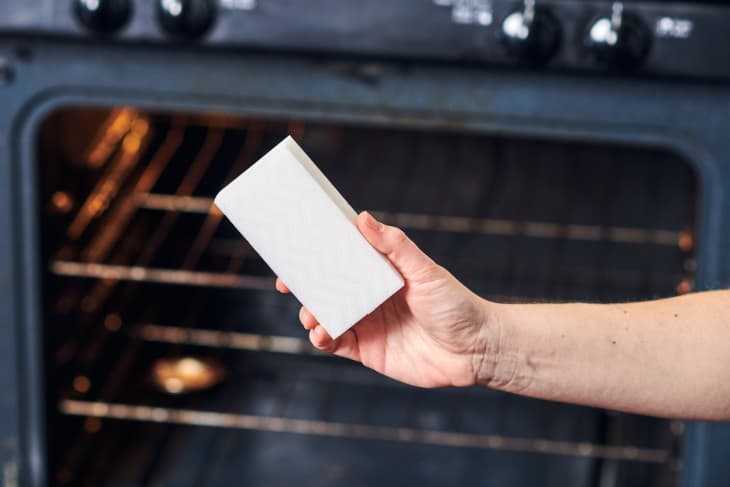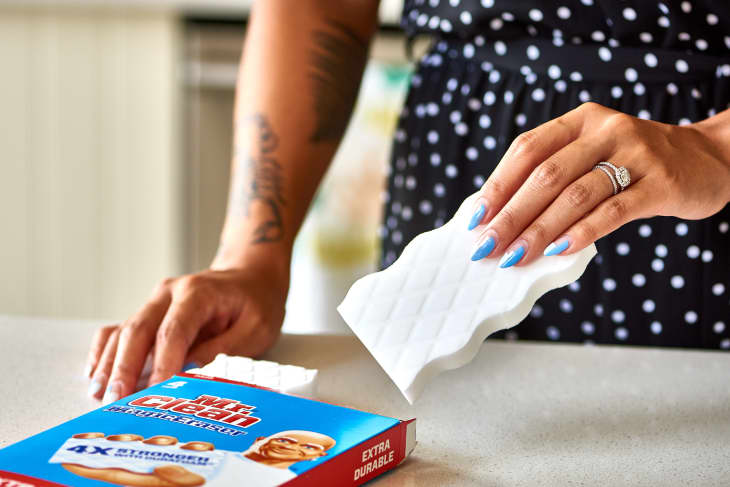

The kitchen sees its fair share of tough messes and spills, which means you need an arsenal of top-notch cleaning supplies to keep the space mess-free. For many people, melamine sponges, commonly referred to as “magic” sponges thanks in part to the beloved Mr. Clean Magic Eraser, are staples in this stash and help tackle tough stains and grease on appliances, countertops, and walls. While they’re great for scrubbing away the most stubborn household stains, they have one major downside people are just discovering.
These “magic” sponges are made of melamine foam, a lightweight plastic material with a fine grit that acts like sandpaper to lift grime and tackle tough messes with minimal effort. Just add water, scrub a little bit, and watch the trickiest messes disappear in no time. Their mix of simplicity and power has made them a must-have cleaning tool around the world — but all that “magic” may come at a cost.
Why People Are Ditching Magic Erasers Forever
Researchers set out to measure how often these sponges release microplastics and how many particles get discarded during typical use. To test this, they ran several melamine sponges from different brands across textured metal surfaces, and the results were striking: one sponge can release 6.5 million microplastic fibers per gram of wear.
With an estimated average of 10% wear during everyday cleaning (a statistic provided by researchers), the team paired their findings with August 2023 monthly sales data from Amazon. Their jaw-dropping calculation? About 1.55 trillion microplastic fibers could be released into the environment each month worldwide — and that’s only accounting for sales from Amazon, which is just one retailer, meaning there are likely trillions more. That means microplastic particles going down your drain, in your home’s air, and all over the surfaces you’re cleaning. Thus, people are ditching Magic Erasers, and for good reason.

So, Why Does It Matter?
Research on how microplastics affect human health is still in its early stages, but evidence about their influence is mounting. Tiny plastic particles have already been found in human blood, lungs, hearts, and even brains. Early studies suggest that these particles may trigger inflammation, disrupt hormones, or potentially harm organs and cause diseases.
What to Use Instead of Melamine Sponges
The research team behind this shocking study found that denser melamine sponges tend to wear down more slowly and shed fewer microplastics than lighter sponges. They suggest manufacturers make denser sponges that hold up better over time to help limit the number of microplastics shed with each use.

